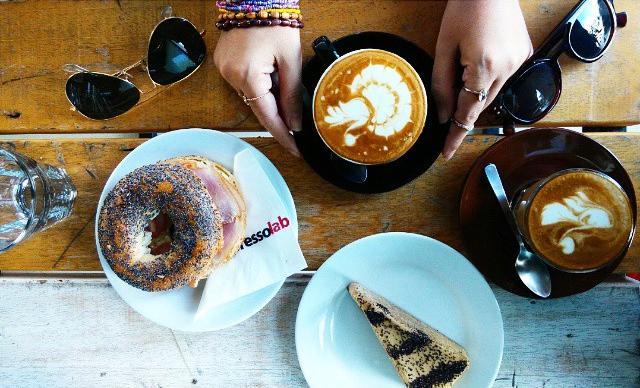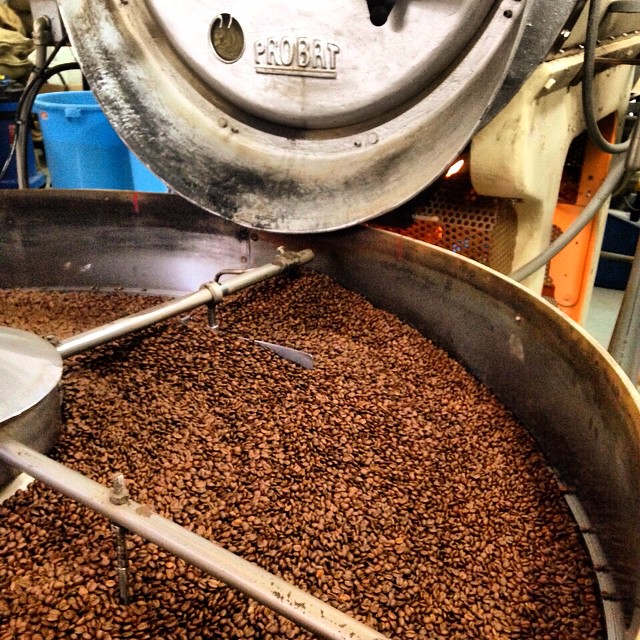If You've Ever Thought Of Owning A Cafe, These 8 Realities Might Make You Think Twice
Owning a cafe is not just about having the best coffee beans or Instagram-worthy decor. Joshua and Kelly of espressolab clue us in on the not-so-rosy realities of running a café.
1. You'll be investing a lot of money, so be prepared to see it through over a long period because running a cafe is not a 6 to 12-month stint
First things first, you have to be financially secure to start a cafe. Investing in a cafe business will cost you at least RM500,000 to RM600,000 to cover your location rental, deposit, labour costs, equipment and supplies, amongst many other things.
That's not all. Competition in the cafe and F&B industry is quite high these days so the chances are, you may not be making a lot of money starting out.
"The harsh reality is that the cafe business in not one where you can make tons of money in a short six to twelve months kind of thing. You need to understand and be prepared to see through it over a long period when you invest in this business," CFO of espressolab Kelly explained.
2. Owning a cafe does not mean you can simply hire someone to run the business for you. You have to be hands-on in managing every aspect of your own business.
One of the misconceptions aspiring cafe owners have is that they do not have to take care of the business. In truth, an owner has to be actively managing the business, even if they are not on-site.
"Actively managing the business doesn't mean you're standing there eight hours a day, serving the customers or making coffee," espressolab COO Joshua explained.
"You have to be involved in the business decision process. You have to know what's happening in your own cafe and not leave it to someone else, because a cafe is a very personalised business. You have to lead by example."
3. A cafe always serves the local community, so the menu should be catered to local taste buds... even if your menu may sound a little odd on paper
"Let's say a cafe is in Klang. The taste buds of the people in Klang are a bit different, so they would want to stock up on different types of cakes. They might want to offer food that is more receptive to the locals as opposed to those in TTDI or the city center," Joshua explained.
"For example, some may insist on selling pasta because it sounds right, but it may not work out well in practice because people don't like to eat pasta in some places. They like to eat nasi lemak."
"You might be thinking, 'Hah? Nasi lemak with coffee ah?', but if the sales prove it, you don't argue with the numbers," he added.
4. Knowing your basic numbers is the key to sustaining your cafe business
Essentially, running a cafe is like running any type of business. You have to understand the concepts of profit and loss, cost-benefit analysis, handling your sales and managing your costs, amongst others.
"It's boring to a lot of people, but the truth is numbers are very sexy," Joshua joked.
"If the numbers make sense and you get good profits at the end of the month, then it becomes very sexy."
5. Having good reviews when you first start out does not mean much. You have to be able to maintain the consistency and quality of your products.
"As competition gets steeper, consumers get more educated, so more people are able to differentiate the quality of your coffee, your food and all that," Kelly said.
6. Taste is subjective, so there is no reason to be a snob about specialty coffee. It intimidates your customers!
According to Joshua, people who are involved in the specialty coffee industry tend to be pretty elitist about coffee. Customers are already intimidated in the presence of someone they perceive to know a lot about coffee, even more so when owners or baristas do nothing to discount that mindset.
"You want people to consume more coffee, it's good for business! So you try to ease them in rather than to show off your jargons about coffee and things like that," he added.
7. Hiring people is not an issue. The tough part is keeping your good employees from leaving.
"Keeping the right staff is very important, because it's customer service," Kelly said. "If you say your product is good, the next thing customers always look for is good service."
She also notes that while it's quite easy to hire people in Malaysia, keeping the good ones is always a tough issue because "employees would like to have a career path."
8. Being a good barista is not just about having the skills to make good coffee. They should also be able to make emotional connections with customers.
"Did you know that 'barista' is Italian for 'bartender'? What impression do you get when you hear the term 'bartender'? A bartender is everyone's best friend!" Joshua explained. "So a good barista or a good business owner should be able to connect with the customer on a good level, on a very emotional level."
He further added that a barista should also be a good salesperson. After all, there are business costs to sustain.
"Upsell, recommend, be authentic, be personal," he said.







